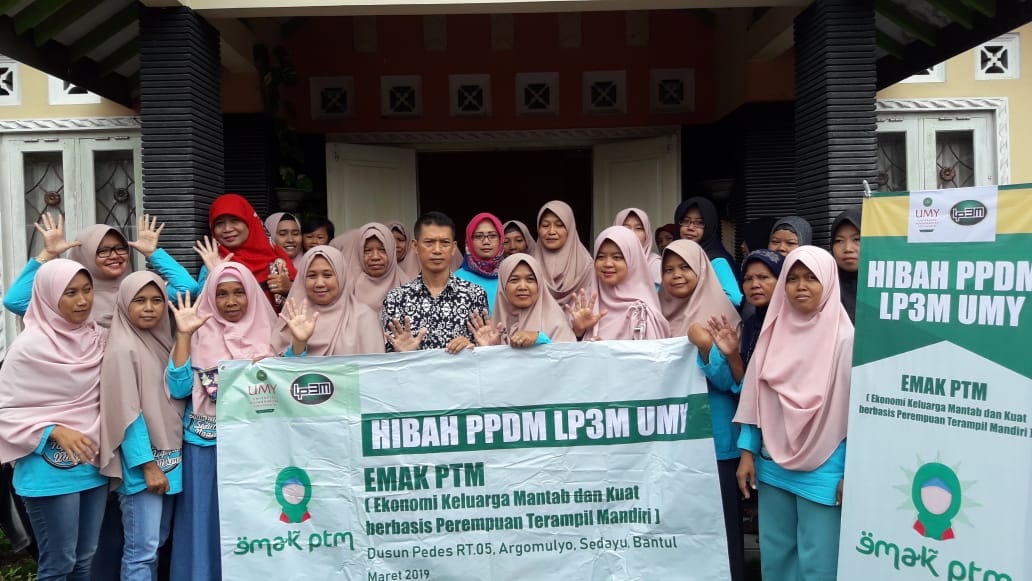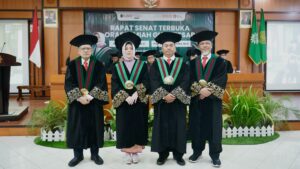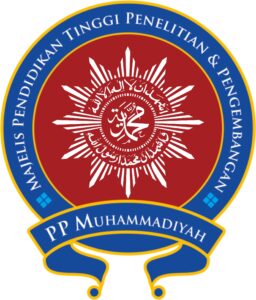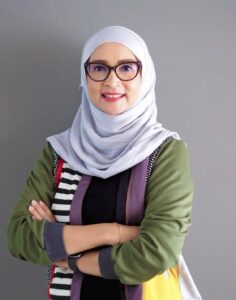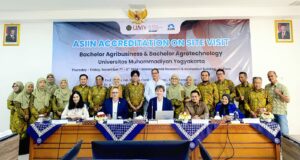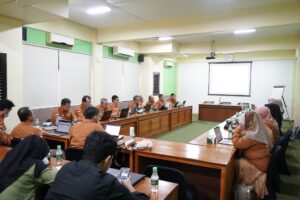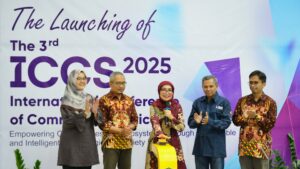Community service is an obligation for every lecturer, but it can be a pleasant activity if it corresponds to the lecturers’ specialties. However, a different case comes to a lecturer from Department of Nursing of Universitas Muhammadiyah Yogyakarta (PSIK UMY). The lecturer conducted an economic-based community service. Carrying Ekonomi Keluarga Mantap dan Kuat Berbasis Perempuan Terampil Mandiri pada Ibu Rumah Tangga (a Firm and Steady Family Economy based on Skilled Independent Housewife) as a focus, Arianti, M.Kep., Ns., Sp.Kep., MB performed a community service in Pedes Hamlet, Sedayu, Bantul. The idea of community service was inspired from restlessness of Arianti’s neighborhood.
Arianti stated that her reason of conducting an economic-based community service is due to cases of housewives in her neighborhood. She added, “Sadly, most of housewives in Pedes still depend on their husband’s incomes. Moreover, those housewives came from a poor background so that they ended up lending money from loan sharks. In some serious cases, those housewives even sold their lands. There was also a case of a woman who ran away to Jakarta because she could not pay debts from the loan sharks. Departing from the circumstance, I held a discussion with the neighborhood unit (RT) of Pedes and proposed an assistance to overcome the problem. Coincidentally, UMY also possesses a community service program so that I decided to help those people in Pedes with low economic incomes.”
Arianti proposed a sewing training program for the housewives. She chose the sewing program because most of women in Pedes worked as laborers in textile companies. She continued, “The program is also funded by Muhammadiyah so that we decided to produce veils, instant hijab and mukena (prayer clothes).”
Arianti informed that the program runs every Wednesday and Thursday, starting from March. She uttered, “All participants seemed very enthusiastic about the program because we also invited an expert to assist. Chronologically, on the first week, we invited a producer of mukena, and an instant hijab producer for the second week. After that, we instructed all the housewives to create their own products.”
Furthermore, Arianti detailed that the program also contributed to assisting all the women to market their products through social media and Muhammadiyah businesses. “From the program, we successfully obtained eighteen participants. We divided those participants into four groups, namely sewing experts, cutting experts, marketing experts, and material and equipment search teams. We also hoped that the housewives can apply their trainings as a means to fulfill their daily needs,” ended Arianti.
